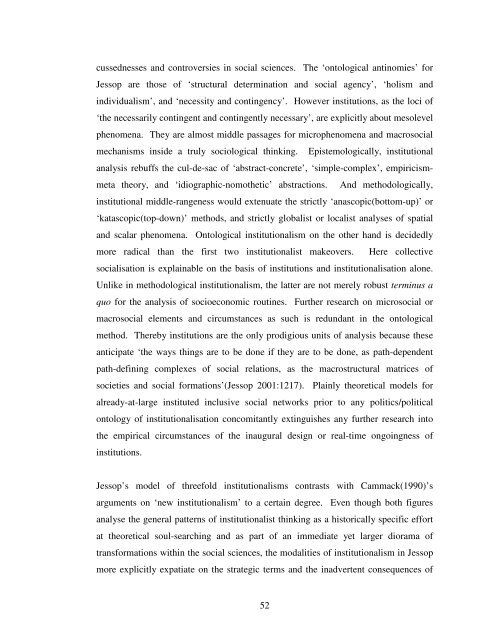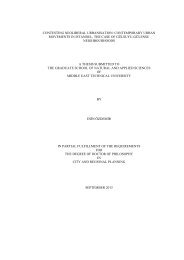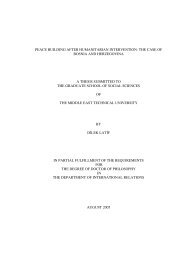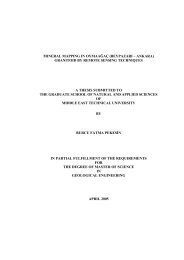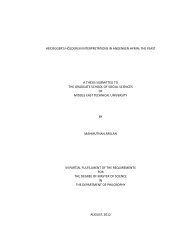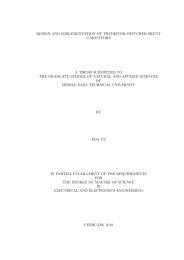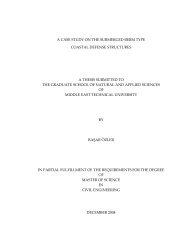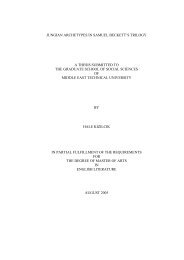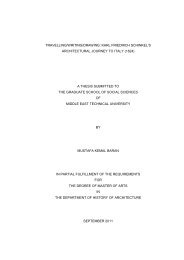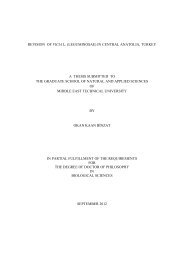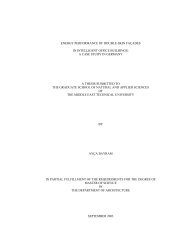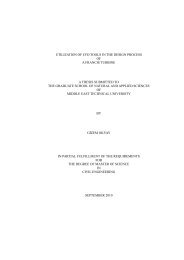View Original - Middle East Technical University
View Original - Middle East Technical University
View Original - Middle East Technical University
You also want an ePaper? Increase the reach of your titles
YUMPU automatically turns print PDFs into web optimized ePapers that Google loves.
cussednesses and controversies in social sciences. The ‘ontological antinomies’ for<br />
Jessop are those of ‘structural determination and social agency’, ‘holism and<br />
individualism’, and ‘necessity and contingency’. However institutions, as the loci of<br />
‘the necessarily contingent and contingently necessary’, are explicitly about mesolevel<br />
phenomena. They are almost middle passages for microphenomena and macrosocial<br />
mechanisms inside a truly sociological thinking. Epistemologically, institutional<br />
analysis rebuffs the cul-de-sac of ‘abstract-concrete’, ‘simple-complex’, empiricism-<br />
meta theory, and ‘idiographic-nomothetic’ abstractions. And methodologically,<br />
institutional middle-rangeness would extenuate the strictly ‘anascopic(bottom-up)’ or<br />
‘katascopic(top-down)’ methods, and strictly globalist or localist analyses of spatial<br />
and scalar phenomena. Ontological institutionalism on the other hand is decidedly<br />
more radical than the first two institutionalist makeovers. Here collective<br />
socialisation is explainable on the basis of institutions and institutionalisation alone.<br />
Unlike in methodological institutionalism, the latter are not merely robust terminus a<br />
quo for the analysis of socioeconomic routines. Further research on microsocial or<br />
macrosocial elements and circumstances as such is redundant in the ontological<br />
method. Thereby institutions are the only prodigious units of analysis because these<br />
anticipate ‘the ways things are to be done if they are to be done, as path-dependent<br />
path-defining complexes of social relations, as the macrostructural matrices of<br />
societies and social formations’(Jessop 2001:1217). Plainly theoretical models for<br />
already-at-large instituted inclusive social networks prior to any politics/political<br />
ontology of institutionalisation concomitantly extinguishes any further research into<br />
the empirical circumstances of the inaugural design or real-time ongoingness of<br />
institutions.<br />
Jessop’s model of threefold institutionalisms contrasts with Cammack(1990)’s<br />
arguments on ‘new institutionalism’ to a certain degree. Even though both figures<br />
analyse the general patterns of institutionalist thinking as a historically specific effort<br />
at theoretical soul-searching and as part of an immediate yet larger diorama of<br />
transformations within the social sciences, the modalities of institutionalism in Jessop<br />
more explicitly expatiate on the strategic terms and the inadvertent consequences of<br />
52


